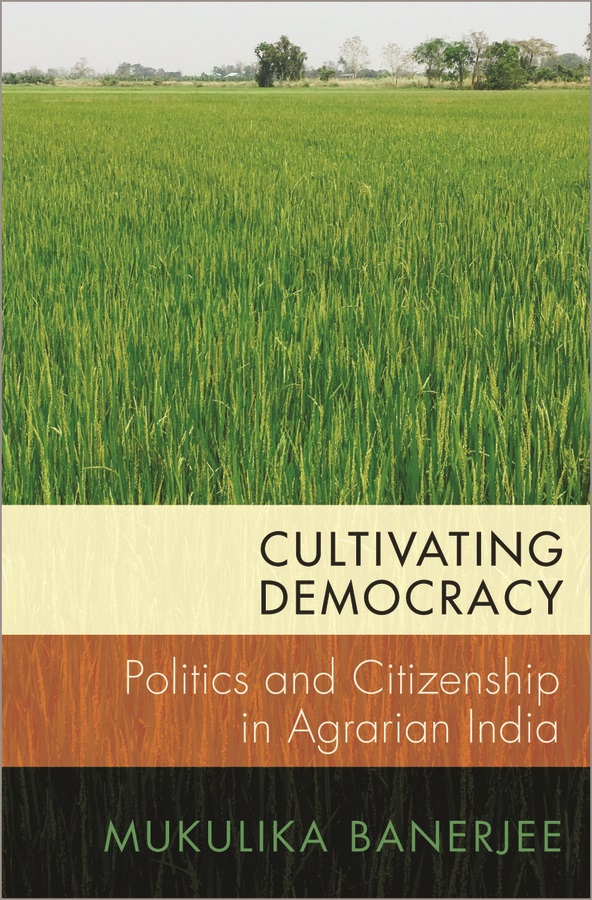Cultivating Democracy: Politics and Citizenship in Agrarian India
An ethnographic study of Indian democracy that shows how agrarian life creates values of citizenship and active engagement that are essential for the cultivation of democracy.
Cultivating Democracy provides a compelling ethnographic analysis of the relationship between formal political institutions and everyday citizenship in rural India. Banerjee draws on deep engagement with the people and social life in two West Bengal villages from 1998-2013, during election campaigns and in the times between, to show how the micro-politics of their day-to-day life builds active engagement with the macro-politics of state and nation. Her sensitive analysis focuses on several "events" in the life of the villages shows how India's agrarian rural society helps create practices and conceptual space for these citizens to be effective participants in India's great democratic exercises. Specifically, she shows how the villagers' creative practices around their kinship, farming and religion, while navigating encounters with local communist cadres, constitute a vital and continuing cultivation of those republican virtues of cooperation, civility, solidarity and vigilance which the visionary Ambedkar considered essential for the success of Indian democracy. At a time when so much of that constitutional vision is under threat, this book provides a crucial scholarly rebuttal to all, on Right or Left, who dismiss rural citizens' political capacities and democratic values. This book will appeal to anyone interested in India's political culture and future, its rural society, or the continuing relevance of political anthropology.
Cultivating Democracy provides a compelling ethnographic analysis of the relationship between formal political institutions and everyday citizenship in rural India. Banerjee draws on deep engagement with the people and social life in two West Bengal villages from 1998-2013, during election campaigns and in the times between, to show how the micro-politics of their day-to-day life builds active engagement with the macro-politics of state and nation. Her sensitive analysis focuses on several "events" in the life of the villages shows how India's agrarian rural society helps create practices and conceptual space for these citizens to be effective participants in India's great democratic exercises. Specifically, she shows how the villagers' creative practices around their kinship, farming and religion, while navigating encounters with local communist cadres, constitute a vital and continuing cultivation of those republican virtues of cooperation, civility, solidarity and vigilance which the visionary Ambedkar considered essential for the success of Indian democracy. At a time when so much of that constitutional vision is under threat, this book provides a crucial scholarly rebuttal to all, on Right or Left, who dismiss rural citizens' political capacities and democratic values. This book will appeal to anyone interested in India's political culture and future, its rural society, or the continuing relevance of political anthropology.

Publisher
Oxford University Press
ISBN
9780197601877
Publication date
1 Jan 2021 – 31 Dec 2021
Specialisation
Social Sciences
Theme
National politics
Region
India